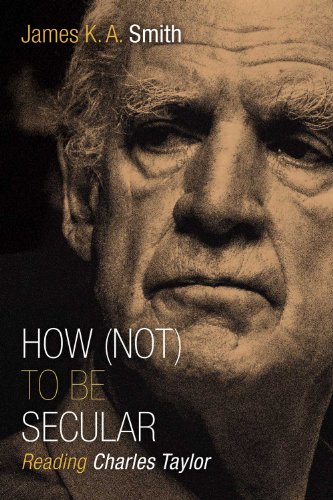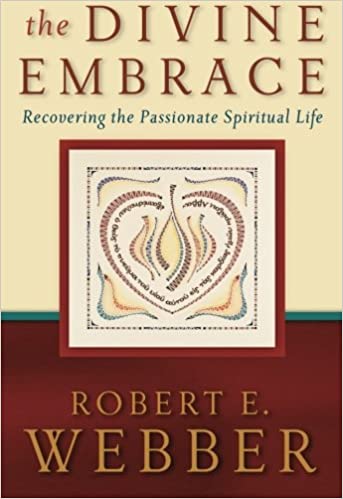Part 2 of the book review on “How Not To Be Secular”
To read part one “It was those Damn Protestants” Click Here
- The world is haunted.
The God story has been pushed to the side. Replaced by one assumed to be better and yet deep into our modern secular age, we are haunted still by transcendence. We glimpse more than just the material world; is there more? There can’t be, but what if there is? Everyone feels the pressure. The world of exclusive humanism has made doubters out of even the best Christians, but its inability to resolve the haunting has made doubters out of everyone.
- We live in the twilight of both gods and idols. But their ghosts have refused to depart. (p 4)
- While the world is disenchanted for “us moderns,” we nonetheless also experience a sense of loss and malaise in the wake of such disenchantment (p. 63).
- Recall Julian Barnes’s plaintive quip: “I don’t believe in God, but I miss Him.”(p. 66).
- This pluralized, pressurized moment in which we find ourselves, where believers are beset by doubt and doubters, every once in a while, find themselves tempted by belief. (p. 3).
- Faith is fraught; confession is haunted by an inescapable sense of its contestability. We don’t believe instead of doubting; we believe while doubting. We’re all Thomas now. (p. 4).
In our haunted world, we stumble forward, the exclusive humanists doing their best to help us find material explanations for the world in which we live. We are supposed to be closed to metaphysical solutions for our experiences, yet somehow, we are not, even after all this time.
- It comes down to a better story — A “take” is the best any of us have
- It’s not that our secular age is an age of disbelief; it’s an age of believing otherwise. (p. 47)
- Taylor seems to recognize that we are “narrative animals”: we define who we are, and what we ought to do, on the basis of what story we see ourselves in. (p. 25). Taylor suggests that those who convert to unbelief “because of science” are less convinced by data and more moved by the form of the story that science tells and the self-image that comes with it (rationality = maturity). Moreover, the faith that they left was often worth leaving. (p. 77). They are convinced that they have picked a better story and thus assume it’s true.
So what’s so special about exclusive humanism?
- “For the first time in history, a purely self-sufficient humanism came to be a widely available option. I mean by this a humanism accepting no final goals beyond human flourishing, nor any allegiance to anything else beyond this flourishing. Of no previous society was this true”(p. 23) And why is this story so much better? While such a universe might have nothing to offer us by way of comfort, it’s also true that “in such a universe, nothing is demanded of us” (p. 367). Now the loss of purpose is also a liberation: “we decide what goals to pursue.” God is dead; viva la revolution. (p. 78). We’ve gone from magic to modernity, from disruptive transcendence to ordered immanence. (p. 44) What could be better?
This story, at first, feels better. It’s up to us to figure life out now. We are truly free; constraints are off. Taylor, though, isn’t doing celebratory dances in the warm sunlight of his liberation. “Not so fast,” he seems to say to anyone willing to listen.

- Numbing the pain becomes the M.O. in the world of exlusive humanism. God is dead, but he’s replaced by everybody else. Everything is permitted, but everybody is watching. So most of the time, the best “salvation” we can hope for is found in behaviours that numb us to this reality: drugs, sex, entertainments of various sorts. (p. 14).
- Liberalism leads to legalism. Tolerance is the last remaining virtue: “the sin which is not tolerated is intolerance” (p. 85). —The story of exclusive humanism at this point runs into a brick wall. The hammer drops hard for anyone who draws a line in the sand, yet we all do. In an ironic twist, we discover that liberalism leads to a new form of oppressive legalism enforced by whatever source of power manages to be in control.
- The Loss of Significance. Living in a disenchanted world comes at the expense of significance and meaning.
- This story doesn’t help us process the brokenness we see all around “Before the reality of human shortcomings, philanthropy — the love of the human — can gradually come to be invested with contempt, hatred, aggression” (p. 697). While I’m motivated to help the poor and vulnerable and even the undeserving because of their inherent dignity, I’m at the same time quietly patting myself on the back, recognizing my moral superiority. So over time, it becomes frustrating that these other humans do not exhibit the same enlightened other-regard: What’s wrong with these people? (p. 126). Can the idea of inherent brokenness that seeps in through Christian thought help us manage reality better? Taylor says yes. “Perhaps, after all, it’s safer to have small goals, not too great expectations, be somewhat cynical about human potentiality from the start” (p. 699). And Taylor hints that acknowledging transcendence can actually relativize our expectations, thus guarding us against this fatigue, frustration, and inevitable misanthropy. So once again, a subtle suggestion: maybe Christianity is less dangerous than liberalism. (p. 127).
- We’ve Inherited more problems by abandoning the idea of sin/evil. We’ve moved from sin to sickness, and in so doing, we’ve shifted from responsibility to victimhood. Taylor uses a lot of big words to tell me that humanism doesn’t have a good explanation for evil. There remains something in the “spiritual” or “transformationist” perspective that does justice to the cracks we feel in our existence — in ways that the exclusively humanist “therapeutic” construal can’t make sense of. (p. 109).
The only way to counter a story is with a better one
- The Christian response to such converts to unbelief is not to have an argument about the data or “evidences” but rather to offer an alternative story that offers a more robust, complex understanding of the Christian faith (story). (p. 77).
- Religion might just be true simply because it is beautiful. “The Christian religion didn’t last so long merely because everyone believed it” (p. 53), Barnes observes. It lasted because it makes for a helluva novel — which is pretty close to Tolkien’s claim that the gospel is true because it is the most fantastic fantasy, the greatest fairy story ever told. (p. 9)
So how does one simply choose the better story? What does that even look like? Part 3 of my blog on this book is coming soon with the answer.





